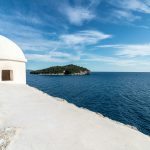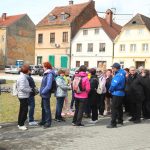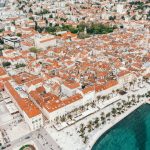ZAGREB, November 23, 2019 – Independent presidential candidate Mislav Kolakušić said in Zagreb on Saturday that he did not want the support of citizens who were not informed about his platform because the changes he advocated were difficult and meant fewer state administration employees but also higher wages.
“If you abolish municipalities, towns and ministries, the consequence is a loss of jobs,” Kolakušić told reporters in downtown Zagreb where volunteers were collecting signatures of support for his presidential bid.
He said that those who wanted to vote for him had to know what would happen if he was elected president.
“If you want to fight corruption, that means that thousands of people will end up in prison,” he said.
He described the economic situation in Croatia as disastrous, adding that citizens were wrong to believe that the state could keep borrowing forever.
Since 2007, Croatia has paid a debt of 207 billion kuna for pensions, while an additional 200 billion kuna will have to be paid in the next ten years, he said.
In July, the Austrian labour market will open for Croatians, which means that 100,000 to 200,000 Croatians will emigrate because they do not want to work for low wages, which will cause an even bigger gap in the pension system, he said, repeating that Croatia had to turn to job creation in the business sector.
“If we do not start opening factories and creating real jobs, we do not stand a chance, now is the time to change because in five years’ time it will be too late,” he said.
Kolakušić went on to say that the judiciary could not be independent if judges had low salaries but that for judges’ salaries to go up, the number of judges had to be halved.
He believes that Croatia stopped being a parliamentary democracy in 2000 because amendments to the constitution adopted at the time enabled borrowing without the parliament making a decision to that effect.
Asked about the ongoing strike of primary and secondary school teachers, he said that he always supported civic action. “We have been plundered because citizens are passive, they must insist on their rights but whether there is money is a different matter,” he said.
As for the course of the presidential campaign so far, he said that he had not heard a single sentence about matters vitally important to citizens because candidates kept talking about football clubs, the past, Communism and the Ustasha instead of about the economy and judiciary.
Among citizens who came to express their support to Kolakušić at the stand where volunteers were collecting signatures for his presidential bid was also Živi Zid president Ivan Vilibor Sinčić, who won almost 300,000 votes in the first round of the last presidential election.
Sinčić called on the citizens who had voted for him to now vote for Kolakušić.
Kolakušić said that if he was successful in the presidential election, he would also participate in parliamentary elections but with a citizens’ slate and not a slate of political parties.
More news about Mislav Kolakušić can be found in the Politics section.








